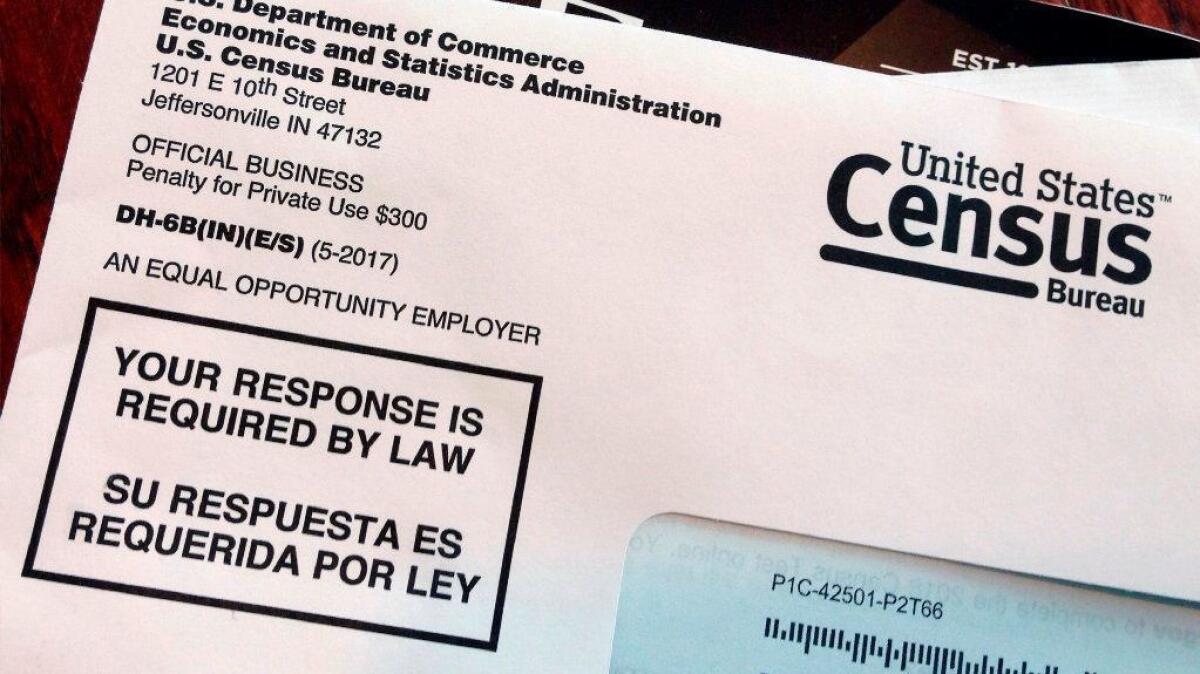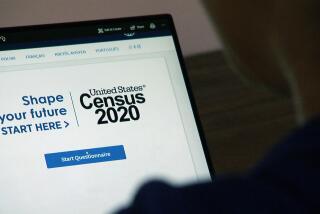Readers React: Why the U.S. census needs fewer racial categories, not more

- Share via
To the editor: Do U.S. census categories, which some people feel do not accurately reflect their race, really erase identity?
Frank Sinatra certainly never forget his Italian ancestry, nor did George M. Cohan forget his Irish heritage. Supreme Court Justice Benjamin Cardozo did not forget his Jewish roots. Their cultural backgrounds were vastly different.
Yet those cultural differences were not marked on the census. And that was actually progressive and very different from Europe, where such labels as “Irish race,” “Anglo-Saxon race” and “Jewish race” were used to ostracize people.
Would we really prefer a census where each of these men would have been placed in a different category? Would someone Jewish be in the proposed Middle Eastern category even though his or her ancestors may not have lived in the Middle East for centuries?
What we need are fewer categories, not more.
David L. Saffan, Santa Barbara
..
To the editor: Samira Damavandi, quoted extensively in this article, feels left out because, being of Iranian heritage, she fits none of the options for race on the census.
Sadly, my wife of Italian ancestry also feels left out since there is no option for “Calabrese.” My Korean friend does not want to be lumped into the same class as Japanese Americans, after what the Empire of Japan did to Korea before and during World War II.
The identity game is rapidly making the American “unum” more and more “pluribus,” defeating one of the great ideas of the United States.
David Goodwin, Pasadena
Follow the Opinion section on Twitter @latimesopinion and Facebook
More to Read
A cure for the common opinion
Get thought-provoking perspectives with our weekly newsletter.
You may occasionally receive promotional content from the Los Angeles Times.









